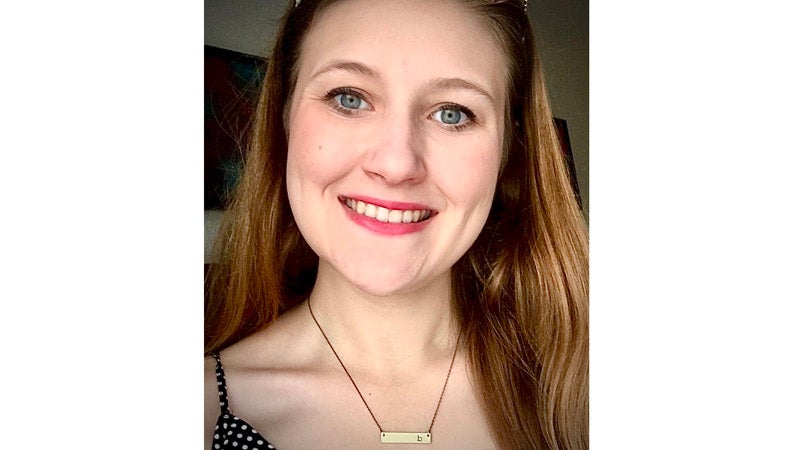DNA tells stories of the German-Acadian Coast
Published 12:00 am Wednesday, January 27, 2021

- Brooke Robichaux
|
Getting your Trinity Audio player ready...
|
Last week, I logged into my Ancestry.com account for the first time in more than a year. The sudden curiosity was sparked by a story I recently wrote about the 300-year anniversary of the German Coast.
Even though my maiden name, Robichaux, is clearly French, I knew I had ties to the German Coast settlers through my maternal great-grandmother, Carmen Vicknair Wilson. Back in the 1700s, Vicknair was originally spelled “Wichner” and pronounced “Vic-ner” in a Germanic dialect. I learned from doing the tri-centennial story that that the early Germanic settlers traveled from regions in present-day Germany, France and Switzerland. They were enticed by promises of great wealth and opportunity, but they were met primarily with hardship and challenges after they first arrived on the West Bank of the Mississippi River in areas now known as Taft, Killona and Lucy in 1721.
I won’t rehash the entire article, which can be found online at lobservateur.com. I did, however, want to share some details that I wasn’t able to fit into the story. The website scphistory.org lists many of the German Coast settlers from the 1724 Census. Among them were some familiar names with slightly different spellings. Changes in German names occurred over time as the Germanic settlers – many who were illiterate and had no formal education – married into French speaking families. Looking at this list of Gallacized names may help you determine if your ancestors were among the hardy German Coast settlers. The original Germanic names are listed on the left of the arrow, and the French names are listed on the right.
Dubs → Toups
Engel → Hingle
Foltz → Folse
Heidel → Haydel
Helfer → Elfer
Himmel → Hymel
Huber → Oubre
Kamper → Cambre
Lesch → Laiche
Manz → Montz
Matern → Mathern
Mayer → Mayeux
Rommel → Rome
Schaf → Chauffe
Scheckschneider → Schexnayder
Traeger → Tregre
Trischl → Triche
Troxler → Trosclair
Wagensbach → Waguespack
Weber → Webre
Wichner → Vicknair
Zehringer → Zeringue
The German-Acadian Coast Historical & Genealogical Society is having a fundraiser through which locals can purchase a 300th anniversary yard sign customized with a family name. For more information, visit gachgs.myshopify.com.
So what about my Ancestry DNA results? When I first did the DNA test, my results came back with an overwhelming amount of “England & Northwestern Europe,” without breaking it down any further. As far as I know, I don’t have any ancestors directly from England, so I figured Northwestern Europe must have translated to Northern France.
If you’ve taken the DNA test in the past and gotten similar results, it may be worthwhile to log back in. Ancestry updates ethnicity estimates for greater precision. This does not mean your DNA has changed; as more people DNA test and the reference panel gets larger, it becomes easier to draw more detailed information from a person’s DNA.
My estimate changed from 77 percent “England & Northwestern Europe” to 36 percent “England & Northwestern Europe,” 26 percent “Germanic Europe” and 15 percent “France.” It is possible that Northwestern Europe includes some additional northern French heritage based on the map on the Ancestry website. The Germanic Europe information was completely new to my Ancestry profile, but it matches up with what I knew about my family history!
The rest of my ethnicity estimate includes smaller amounts of Italy (from my mother’s side), Ireland and Scotland. I even had a one percent match for Malta, an island off the Southern coast of Italy.
I would definitely recommend looking into genealogy through Ancestry.com. The dark history of slavery has complicated genealogy searches for African American families, but there are local resources such as Destrehan Plantation that can be of great help filling in the blanks.
Without signing up for any paid services, I was able to track the Robichaux side of my family back to the 1700s in the River Parishes. It is amazing how my ancestors over the past 10-plus generations have resided so close to where I live today. I get the feeling that many of us in this community are distant family. Regardless of DNA, we should always treat the people in our community like family.
Brooke R. Cantrelle is news editor for L’OBSERVATEUR. She can be reached at 985-652-9545 or brooke.robichaux@lobservateur.com.




